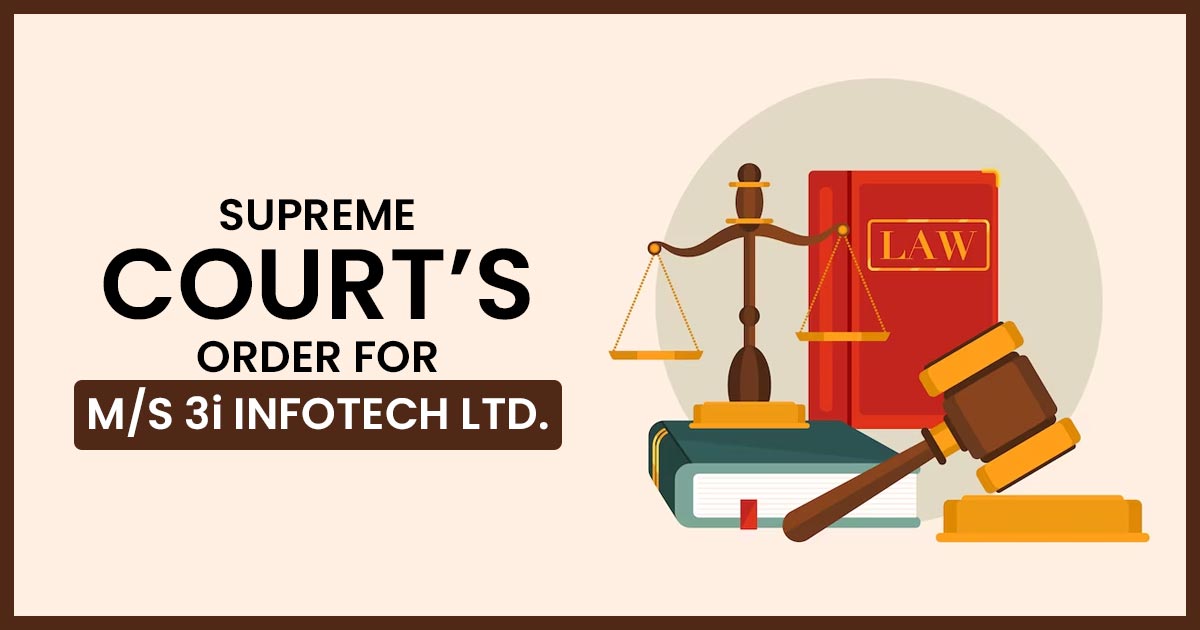
The show cause notice has been quashed by the Supreme Court of India which ruled that the penalty under section 76 of the Goods and Service Tax (GST Act) is not imposed on the grounds of the wrong stating of the category of service in the show cause notice.
Notices were served under Section 73 of the Finance Act, 1994, to 3I Infotech Ltd, the respondent, regarding the service tax demand. The Commissioner adjudicated the Show Cause Notices, which were contested before the Customs, Excise and Service Tax Appellate Tribunal, West Zonal Bench at Mumbai (CESTAT), resulting in an order for remand.
During the remand process, CESTAT noted that the Commissioner’s order did not clarify how the service tax liability had been calculated. CESTAT also highlighted that if the respondent had acquired software from third parties and sold it after paying VAT or supplied hardware with VAT payment, such transactions might not be subject to service tax.
The Tribunal further stipulated that service tax liability would only apply to software developed by the respondent based on customer specifications and supplied to them. It emphasized the need to examine agreements with clients, invoices for services provided, goods supplied, and payments made towards service tax liability.
The Commissioner determined that services provided by the respondent from April 10, 2004, to May 15, 2008, relating to software should be classified as “Intellectual Property Service” under Section 65(55b) of the Finance Act. From May 16, 2008, onwards, these services should be classified as “Information Technology Software” under Section 65(53a) of the Finance Act. Additionally, the Commissioner stated that the value of computer hardware used for providing services should be factored into the valuation of the respective services under Section 67 of the Finance Act.
Upon appeal, the Customs Excise and Service Tax Appellate Tribunal (CESTAT) determined that the disputed services were categorized as “Information Technology Software” from May 16, 2008, and as “Intellectual Property Service” for the period until May 15, 2008. As a result, the Tribunal concluded that the show cause notice was not justified.
The services encompassing the management, maintenance, and repair of computer hardware and software under the annual maintenance contract fell within the scope of “Management, Maintenance, or Repair” services as defined in Section 65(64) of the Finance Act.
The court noted that the classification outlined in the initial show-cause notice was entirely mistaken. Hence, CESTAT’s decision to deem the first show cause notice as invalid was justifiable. Basic principles of natural justice necessitate that any adjudication stemming from a show cause notice should strictly align with the service classification mentioned in that notice. Imposing penalties on the assessee based on a show cause notice containing an entirely erroneous service category is unjust.
Recommended: A Proper Example of Respond DRC-01 Notice to GST Officer
Consequently, the demand made by the initial show cause notice was unlawful. Justices Abhay S. Oka and Sanjay Karol, presiding over a two-judge bench, found no flaws in CESTAT’s rationale.
| Case Title | M/s 3I Infotech Ltd Vs Commissioner of Service Tax |
| Case No. | Civil Appeal No.4007 of 2019 |
| Date | 14.08.2023 |
| Supreme Court | Read Order |









